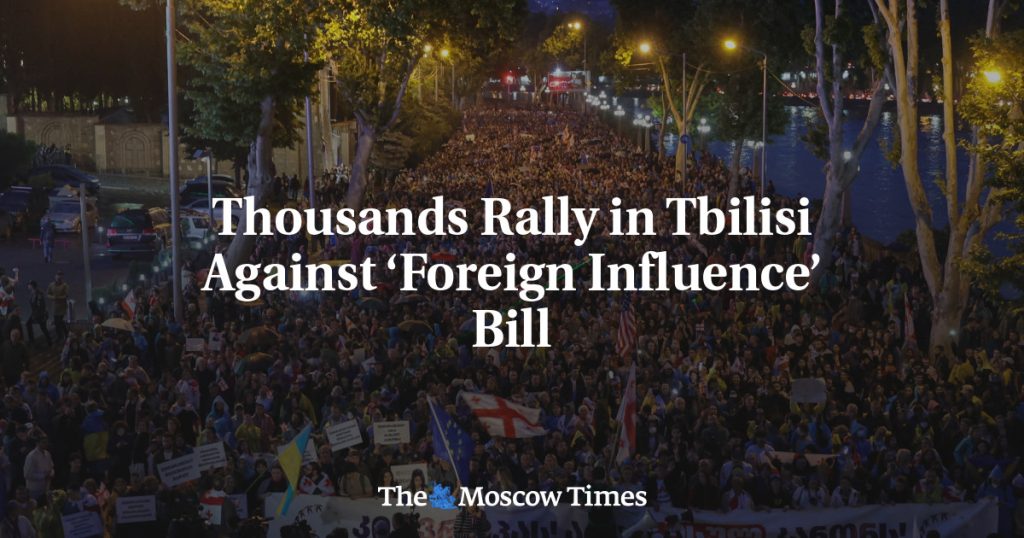Thousands of protesters in Tbilisi rallied against a bill supported by the Georgian government that has been compared to Russian laws restricting dissent. The bill requires independent NGOs and media organizations receiving more than 20% of their funding from abroad to register as organizations working for a foreign power. The bill has sparked massive protests in the country, with demonstrators expressing concern that Georgia is moving closer to Russia and away from its European future.
The protests have been ongoing for almost a month, with the ruling Georgian Dream party pushing for the bill’s passage ahead of parliamentary elections in October. The European Union, the United States, and the United Nations have all condemned the legislation, with the UN human rights chief expressing concern over the violence used by Georgian police to break up a protest on April 30. The bill has reignited anger and frustration among the Georgian population, who fear their country is moving in a direction that resembles the authoritarianism seen in Russia.
Despite the backlash and protests, Georgian Dream has stood by the bill, arguing that it will increase transparency in foreign funding for NGOs. The party aims to pass the bill into law by mid-May, despite intense opposition from civil society groups, independent media, and the general public. Many protesters fear that the bill is an attempt by the government to stifle dissenting voices ahead of the upcoming elections, leaving only a few critical voices left in the country.
The demonstrations reflect a deeper struggle within Georgian society between those who want to strengthen ties with the West and those who gravitate towards Russia. Georgian Dream, led by former Prime Minister Bidzina Ivanishvili, has been accused of trying to align the country more closely with Russia, despite its aspirations to join the EU. Ivanishvili has faced criticism for his close ties to Moscow while also advocating for Georgia to become a part of the European community. The reintroduction of the bill has sparked renewed tension and division within the country, as protesters continue to demand the protection of their freedom and democratic values.
The protests have drawn a diverse group of people, ranging from students to teachers to activists, all united in their opposition to the bill and what it represents. Many protesters see the legislation as an attempt to suppress the voices of civil society and independent media, which are critical for a functioning democracy. The protests have grown in size and intensity, with no signs of slowing down, as demonstrators continue to voice their concerns about the direction their country is heading. Despite the government’s efforts to pass the bill, the protesters are determined to fight against what they see as a threat to Georgia’s democratic future.


